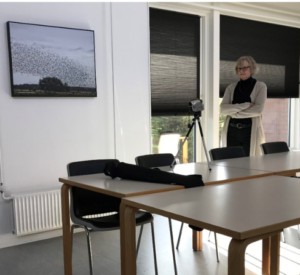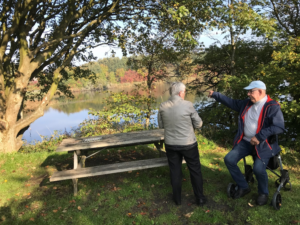The external presentation of our WIPP project is a very important concern for all partners. Over the last years, we have overcome some barriers and created milestones on our way. Some of these achievements have already been made in the past and will be shared in the future with senior citizens aged 65 and older, as well as other interested people.
Already at the end of the year 2018, the Christian-Albrechts-University Kiel (CAU) used the opportunity to put the WIPP project more in the focus of the senior citizens of Kiel. In the context of the well-established and very successful lecture series “Age, health and active lifestyle”, the EU project was explained and the importance of physical, mental and social care for old age citizens was highlighted. At the beginning of the year 2020, the WIPP project will again receive much attention and the CAU will present results and reports from the districts of Kiel.
At another very eye-catching event in September 2019, the “Night of Science” in Kiel, the CAU presented the WIPP project again. With a poster presentation and practical elements (for example, testing of grip strength, testing balance, getting up from lying down, etc.), many important information of the WIPP project was disseminated on to all those interested. Many seniors with their grandchildren, but also parents with their children found the way to the CAU booth and asked questions or tested their physical abilities.
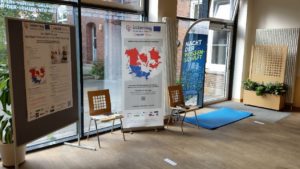
The external presentation of the WIPP project by the CAU took place not only in the Kiel area, but also at various national congresses. Among other things, on the Sports Science University Day of the Deutsche Vereinigung für Sportwissenschaft (dvs), as well as on the annual conference of the Arbeitsgemeinschaft für Sportpsychologie in Deutschland (asp).
Furthermore, the CAU presented the WIPP project several times in the past year 2018 until today to health days and health weekends of the Bundesagentur für Arbeit. The framework, the procedure and the goals of the WIPP project were presented. In addition, important areas of prevention for the 65-year-olds and older citizens were explained. At the events many different people were reached. Not only people who are about to retire, but also executives and younger colleagues. The CAU looks forward to further opportunities in the future, to provide the important issue of primary prevention for the age and give it the necessary attention.
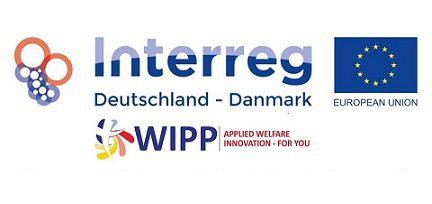
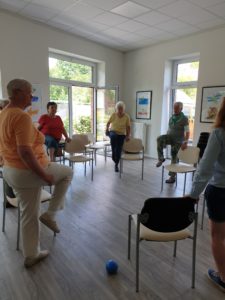
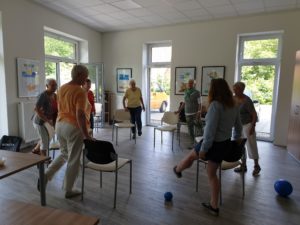
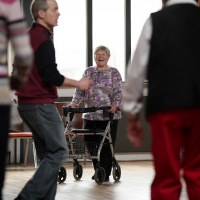
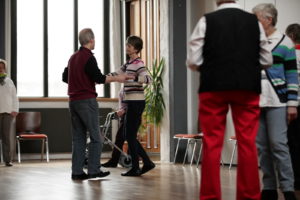
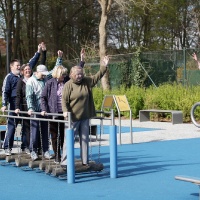
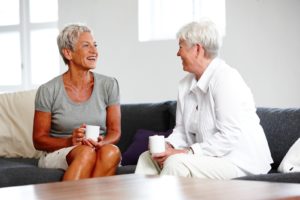
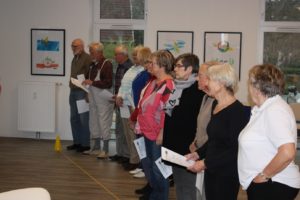
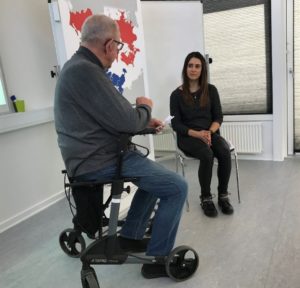 In October 2018, many WIPP activities took place, including the WIPP partner- and networkpartner- meeting in Esbjerg. In this context, 4 participants of the 2 different WIPP interventions by Carina Wilkens and Petra Hampel were interviewed in the framework of the WIPP Work Package 2 (WP2) of the European University of Flensburg in the Østerby Health Center in Esbjerg. It was about the experiences of senior citizens participating in WIPP.
In October 2018, many WIPP activities took place, including the WIPP partner- and networkpartner- meeting in Esbjerg. In this context, 4 participants of the 2 different WIPP interventions by Carina Wilkens and Petra Hampel were interviewed in the framework of the WIPP Work Package 2 (WP2) of the European University of Flensburg in the Østerby Health Center in Esbjerg. It was about the experiences of senior citizens participating in WIPP.